publications
A list of my publications in conferences and journals.
2025
-
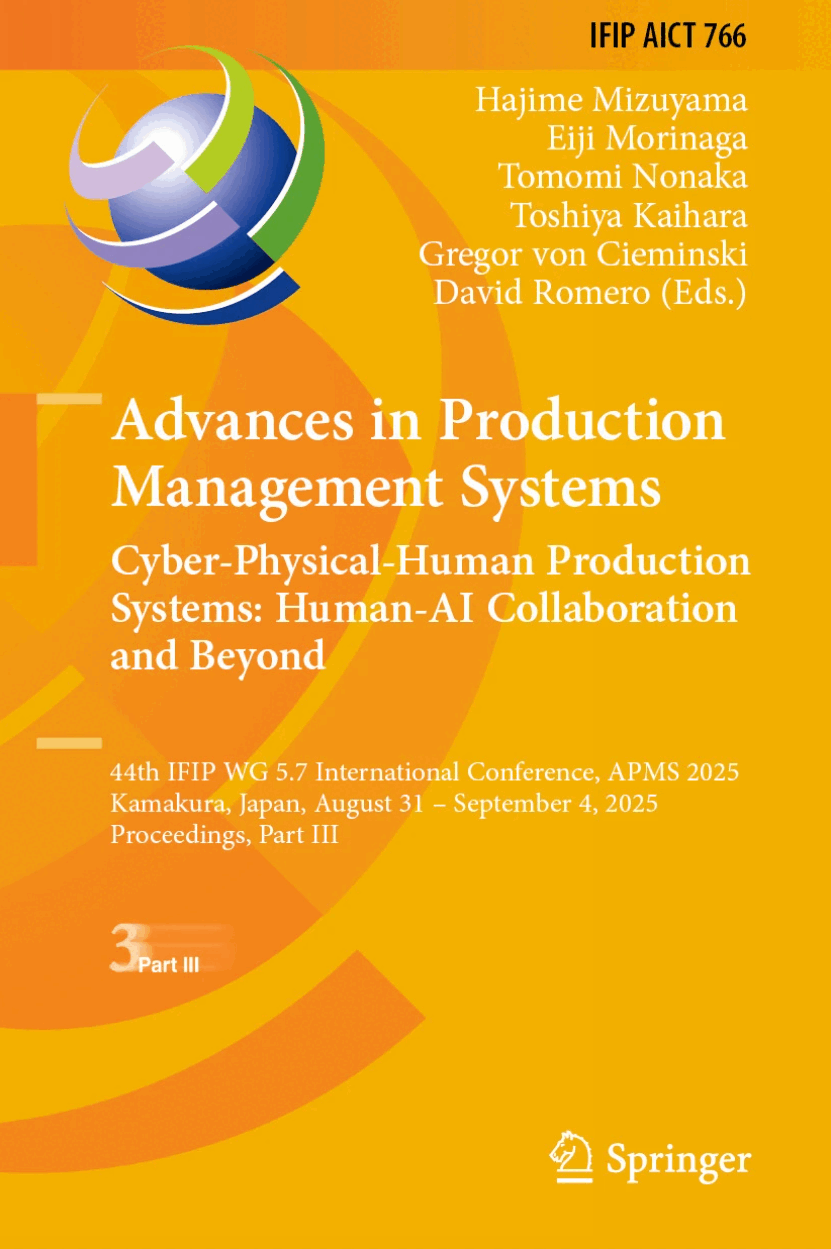 From Analog to Digital: A Frugal Framework for Digital Transformation in Manufacturing Microenterprises Under Resource ConstraintsMohammed Omer, Sonja Buxbaum-Conradi, Manuel Moritz, and 1 more authorIn Advances in Production Management Systems. Cyber-Physical-Human Production Systems: Human-AI Collaboration and Beyond, 2025
From Analog to Digital: A Frugal Framework for Digital Transformation in Manufacturing Microenterprises Under Resource ConstraintsMohammed Omer, Sonja Buxbaum-Conradi, Manuel Moritz, and 1 more authorIn Advances in Production Management Systems. Cyber-Physical-Human Production Systems: Human-AI Collaboration and Beyond, 2025 -
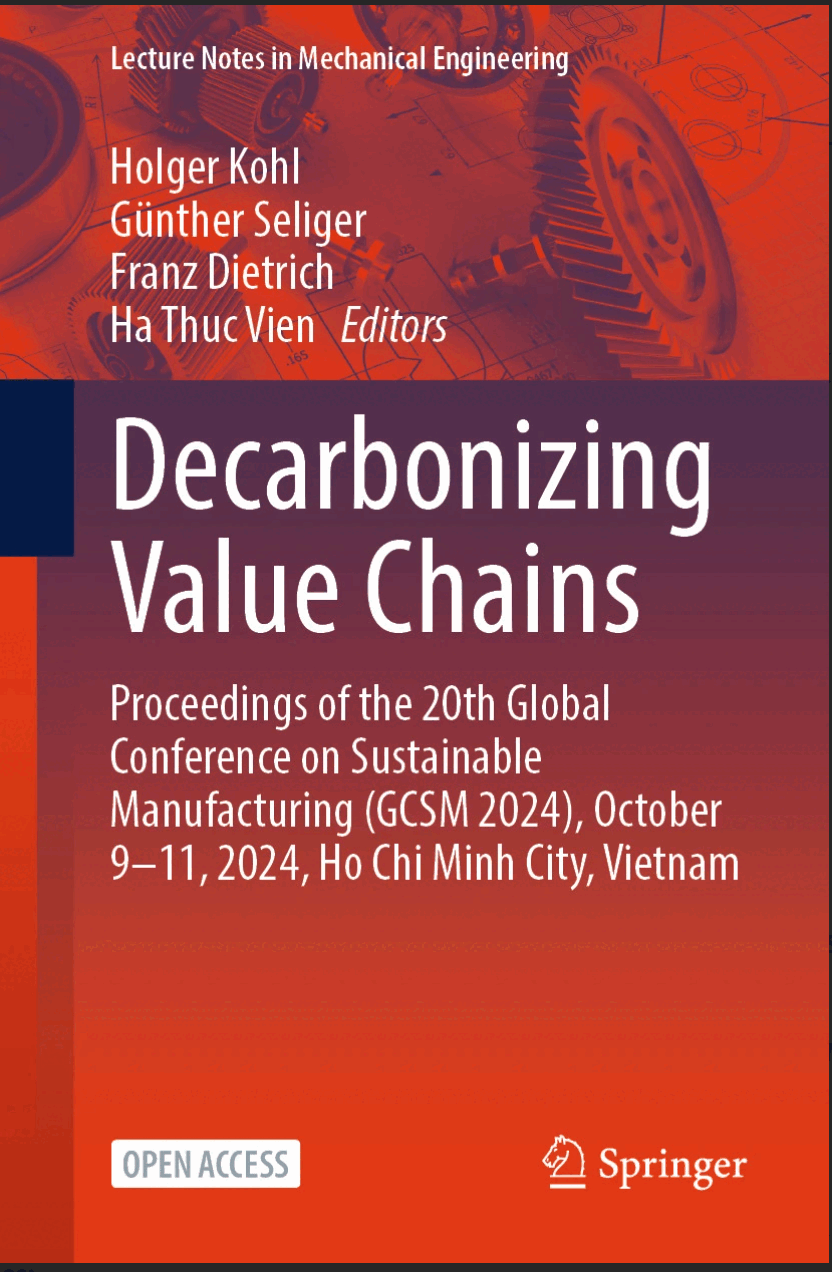 Bridging the Gap: Enhancing Industry 4.0 Readiness in Low-Resource Microenterprises Through Open Source TechnologiesMohammed Omer, Melina Kaiser, Sonja Buxbaum-Conradi, and 1 more authorIn Decarbonizing Value Chains, 2025
Bridging the Gap: Enhancing Industry 4.0 Readiness in Low-Resource Microenterprises Through Open Source TechnologiesMohammed Omer, Melina Kaiser, Sonja Buxbaum-Conradi, and 1 more authorIn Decarbonizing Value Chains, 2025Industry 4.0 (I4.0) enables companies to become more efficient and competitive, yet research often centers on larger businesses in industrialized nations. The potential of microenterprises (MEs), which absorb up to 70% of the total labor force in low and middle income countries, remains understudied. This paper investigates the readiness of MEs in low-resource settings to adopt I4.0 and explores the necessary conditions for successful adoption. Through qualitative interviews and observations conducted in manufacturing MEs in Oman, the study analyzes existing production processes, the types of machines currently used, and the workforce’s skills and experiences to identify deficiencies potentially impeding the path towards digitalization and I4.0. Key findings reveal that many businesses lacking basic automated tools and having limited capital, effectively operate at Industry 2.0 levels. The research highlights the role of cost-effective open source machine tools and enhancing manual machines with open source ‘Internet of Things’ technologies. These solutions aim to enhance readiness and transform basic production into intelligent, interconnected systems by lowering the threshold to access. By addressing the prerequisites for I4.0 adoption, this paper contributes to advancing industrial capabilities in the global south and offers practical insights into empowering MEs through open-source technologies.
-
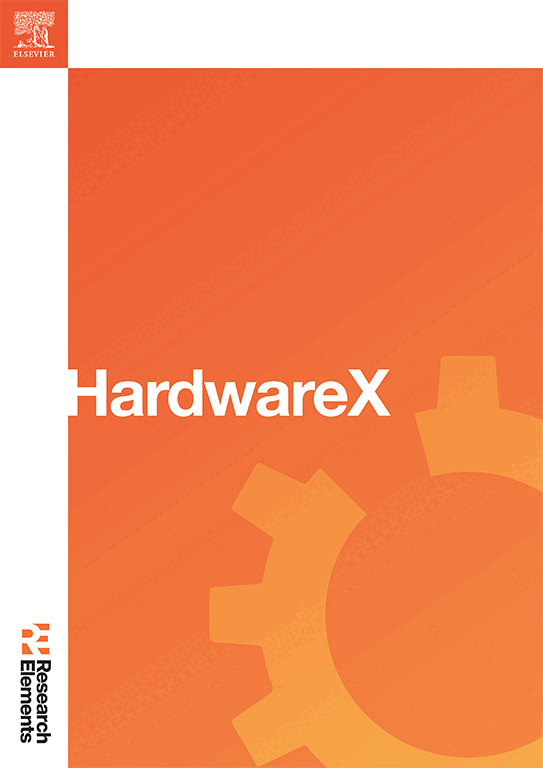 Open Lab Starter Kit Small Laser V2–an open source Fab lab produced laser cutterDaniele Ingrassia, Gaia Di Martino, J. C. Mariscal-Melgar, and 1 more authorHardwareX, 2025
Open Lab Starter Kit Small Laser V2–an open source Fab lab produced laser cutterDaniele Ingrassia, Gaia Di Martino, J. C. Mariscal-Melgar, and 1 more authorHardwareX, 2025The rise of Open Source manufacturing ecosystems is a multifaceted phenomenon, fueled by the proliferation of digital fabrication technologies, the collaborative spirit of the Open Source movement, and the creation of spaces like hackerspaces, and fab-labs. Part of the efforts is the Open Lab Starter Kit (OLSK), a set of machines designed to lower the barriers to entry for everyone. The OLSK Small Laser V2, an integral component of the OLSK, represents the second phase of design and prototyping within the scope of an Open Source Laser Cutter initiative. Being reproducibility and accessibility central goal of the OLSK, great attention was given not only to the design of the hardware, but also to the development of comprehensive documentation. The documentation, encompassing repositories and assembly manuals, assumes a pivotal role within the project framework, aiming to facilitate swift reproduction and user-friendly accessibility. Functionally, the OLSK Small Laser V2 is comparable with mainstream off-the-shelf laser cutters, demonstrating proficient cutting capabilities across commonly processed materials compatible with a 40 W CO2 laser cutter, such as plywood, acrylics and Medium-Density Fiberboard (MFD), with a cutting area of 400 mm x 600 mm.
-
 A digital platform for enhancing local production networks in resource constrained microenterprises – A case studyMohammed Omer, and Tobias RedlichIn Procedia CIRP, 2025
A digital platform for enhancing local production networks in resource constrained microenterprises – A case studyMohammed Omer, and Tobias RedlichIn Procedia CIRP, 2025Microenterprises (MEs) contribute significantly to GDP and employment in developing economies but face systemic challenges that restrict their growth, competitiveness and market access. This paper examines the specific case of migrant-owned MEs in Oman’s manufacturing sector, where these small workshops operate under resource constraints and fierce competition from imported goods. Based on qualitative research, including interviews and field observations with 15 migrant-run MEs, this study identifies the primary operational challenges these enterprises face, such as inconsistent access to work, limited subcontracting channels, and restricted market access. The research also maps the informal production network that has organically emerged among these enterprises over time, illustrating material and information flows within the ecosystem. In response, it proposes a digitally enabled local networked production system designed to connect these MEs in a shared resource and market access platform to enhance collaboration and efficiency among MEs. By improving capacity visibility, enabling resource sharing, and expanding market access, the platform seeks to optimize resource utilization and foster equitable work distribution. By grounding the design requirements in empirical findings, this paper establishes a foundation for future development and testing of the networked platform, contributing to discussions on how local networked production principles can support sustainable development for MEs in resource constrained settings, fostering economic integration and resilience in underserved markets.
2024
-
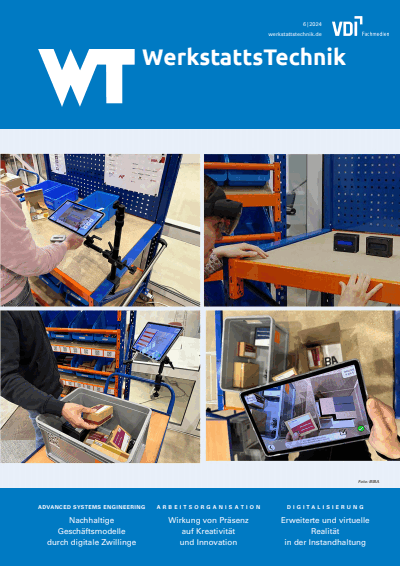 OLSK Small Laser case study – Designing and prototyping open-source digital fabrication machinesGaia Di Martino, J. C. Melgar-Mariscal, Mohammed Omer, and 1 more authorwt Werkstattstechnik online, 2024
OLSK Small Laser case study – Designing and prototyping open-source digital fabrication machinesGaia Di Martino, J. C. Melgar-Mariscal, Mohammed Omer, and 1 more authorwt Werkstattstechnik online, 2024Decentralized manufacturing and digital fabrication tools drive open-source methods’ importance, as shown by the OLSK Small Laser. This paper explores OLSK Small Laser’s second version development, emphasizing accessibility and cost-effectiveness. Replicability is key, with detailed documentation and design allowing customization and repairs, promoting sustainability. The article provides an overview of OLSK Small Laser V2’s features and design philosophy.
-
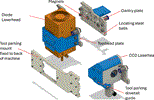 Entwicklung eines automatischen Open-Source-WerkzeugwechslersTobias Redlich, Mohammed Omer, Manuel Moritz, and 1 more authorZeitschrift für wirtschaftlichen Fabrikbetrieb, 2024
Entwicklung eines automatischen Open-Source-WerkzeugwechslersTobias Redlich, Mohammed Omer, Manuel Moritz, and 1 more authorZeitschrift für wirtschaftlichen Fabrikbetrieb, 2024Open source machine tools have the potential to democratize manufacturing by breaking down barriers to entry and enabling new forms of value creation. However, due to the complexity of the mechanical design and control of CNC milling machines, there is currently no open source automatic tool changer (ATC) for these machines. ATC systems are crucial for the automation of manufacturing processes that require multiple operations with different tools for a complete production step. This paper describes the development of an open source ATC, focusing on mechanical design and control scheme.
-
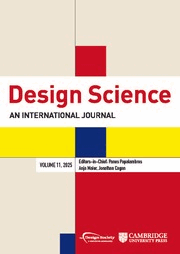 Designing for replicability: a qualitative empirical study on the replication of open-source machine toolsMohammed Omer, Melina Kaiser, Sonja Buxbaum-Conradi, and 2 more authorsDesign Science, 2024
Designing for replicability: a qualitative empirical study on the replication of open-source machine toolsMohammed Omer, Melina Kaiser, Sonja Buxbaum-Conradi, and 2 more authorsDesign Science, 2024By making building instructions freely accessible to everyone, open-source machine tools (OSMTs) promise to democratize manufacturing by enabling users in marginalized settings to build machines tools by themselves. There is, however, a lack of empirical evidence of the replicability of OSMT designs in low-resource contexts. This article explores OSMT replicability through qualitative and empirical methods to answer the central research question: Are designs that are fully open source also globally replicable? A comparative experiment was carried out by replicating an open-source 3D printer in two different locations: in Germany (resource-rich) and in Oman (resource-poor). The experiment aimed to determine the barriers faced with the replication in each location. It was significantly more challenging to replicate the 3D printer in Oman, primarily due to difficulties in sourcing and manufacturing, necessitating extensive modifications, which demanded greater skills and dexterity from users compared to those in Germany. Qualitative interviews found that limited digital literacy posed a significant barrier for microenterprise owners in replicating OSMT. Finally, design guidelines were proposed to enhance the global replicability of contextualized OSMT designs.
-
 Inclusive Production Capacity Building for MSMEs: Designing Open Source Machine Tools and the OLSK approachMohammed Omer, Melina Kaiser, Daniele Ingrassia, and 3 more authorsProcedia CIRP, 202434th CIRP Design Conference
Inclusive Production Capacity Building for MSMEs: Designing Open Source Machine Tools and the OLSK approachMohammed Omer, Melina Kaiser, Daniele Ingrassia, and 3 more authorsProcedia CIRP, 202434th CIRP Design ConferenceBy creating opportunities for formal employment and absorbing significant portions of the global workforce, micro, small and medium enterprises (MSMEs) can be potent catalysts for sustainable and inclusive economic growth while making supply chains more resilient. However, acquiring the digital fabrication machine tools necessary for manufacturing, primarily produced in a few industrialized nations, presents a significant financial challenge for many MSMEs in developing countries. Open source machine tools, where designers freely share machine designs online, challenge traditional intellectual property models, but they suffer from scattered and poorly documented designs. This paper introduces the Open Lab Starter Kit (OLSK) approach, aiming to design, develop, and document crucial open source machine tools (OSMT) commonly needed to establish fab labs. The OLSK follows open source principles, reducing costs and barriers by enabling local replication using local resources. This strategy aims to democratize access to OSMT, foster innovation in resource-constrained regions and contribute to the broader landscape of open source hardware and its transformative potential. The benefits of the OLSK for MSMEs are discussed, challenges are highlighted. Based on this, some solutions for the application of the OLSK approach to digital fabrication in MSMEs are derived which aim to increase its accessibility and sustainability.
-
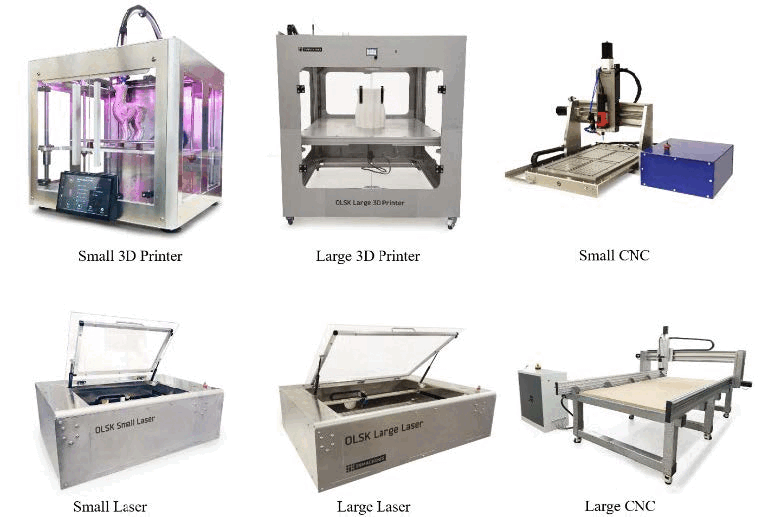 Enabling Technology Diffusion with the Open Lab Starter KitMohammed Omer, Melina Kaiser, Manuel Moritz, and 2 more authors2024
Enabling Technology Diffusion with the Open Lab Starter KitMohammed Omer, Melina Kaiser, Manuel Moritz, and 2 more authors2024In recent years, fabrication laboratories or Fab Labs have challenged the dominant position of conventional large-scale manufacturing by offering low-threshold opportunities to engage with production. Fab Labs are therefore catalysts to the emancipation of manufacturing from primarily industrial to personal and communal contexts. However, various bureaucratic and resource-related challenges make the set-up of Fab Labs difficult and hinder an equitable spatial distribution of Fab Labs; there exists, for example, a great difference in the number of labs between industrialized and developing countries. This is contrary to the Fab Lab idea as it hurts the egalitarian access to digital fabrication machines. In response to this, efforts such as the Open Lab Starter Kit (OLSK) make use of Open-Source Hardware (OSH) and specifically Open-Source Machine Tools (OSMT) to facilitate the establishing of labs. The costs and thresholds of these so-called open labs are significantly lower compared to conventional Fab Labs because the machine tools used in them can be manufactured and replicated locally, using local resources. This chapter presents the OLSK approach to open-sourcing the design and documentation of machine tools, and furthermore examines its scope as an enabling technology for a more inclusive and equitable fab city concept.
2023
-
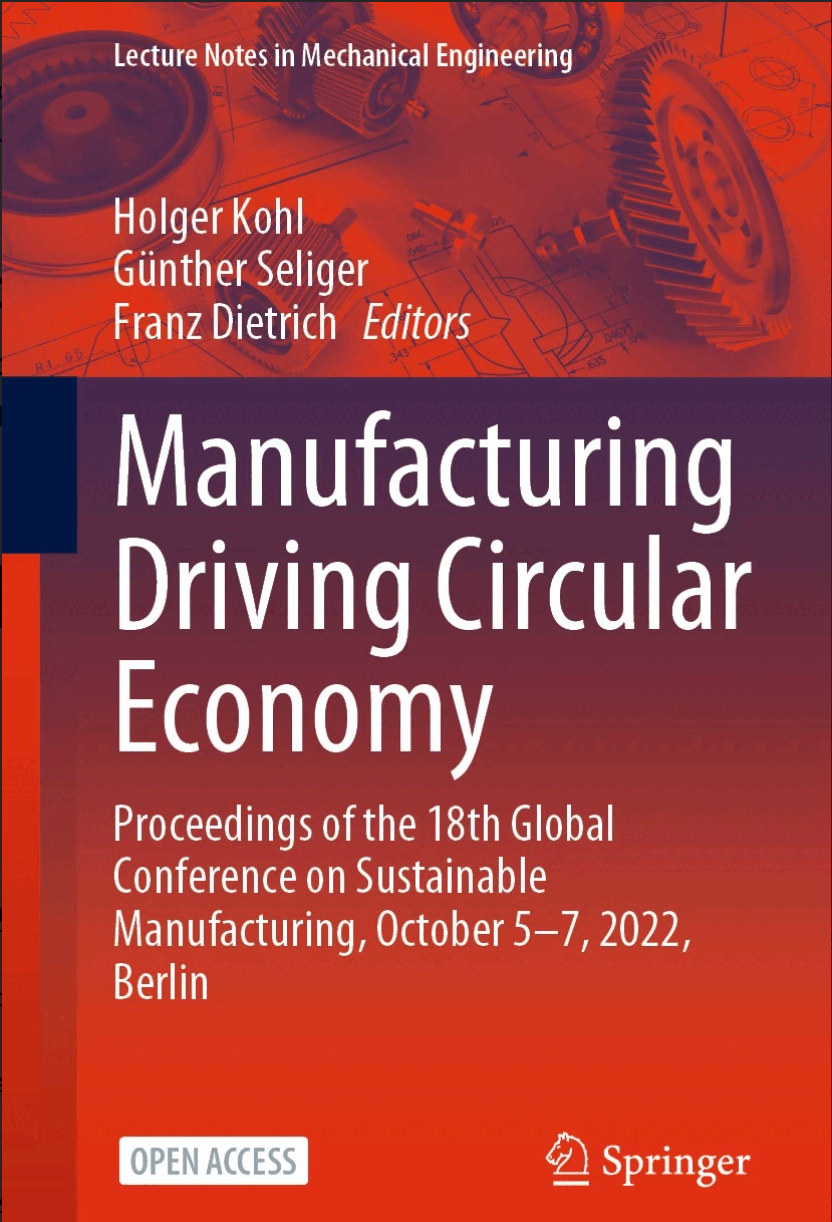 Exploring the Potential of Open Source Machine Tools for Sustainable Industrial Development in Low Resource Contexts - A Case Study of Migrant-Run Microenterprises in OmanMohammed Omer, Melina Kaiser, Tobias Redlich, and 1 more authorIn Manufacturing Driving Circular Economy, 2023
Exploring the Potential of Open Source Machine Tools for Sustainable Industrial Development in Low Resource Contexts - A Case Study of Migrant-Run Microenterprises in OmanMohammed Omer, Melina Kaiser, Tobias Redlich, and 1 more authorIn Manufacturing Driving Circular Economy, 2023In low resource contexts, access to technologies is limited. Most firms in developing countries are still using analog technologies and have not attained the industrial maturity required to harness the benefits of industry 4.0, which include increased productivity and a reduced environmental impact of the manufacturing sector. This further exacerbates the unequal wealth distribution pervasive in today’s globalized world. With the democratization of the internet and increasing accessibility to microcontrollers and automation technology, the last decade has seen the rise of open source machine tools (OSMT) such as CNC mills and 3D printers. By facilitating sustainable and inclusive production capacity building, OSMT are a key technology driver that can enable developing countries to leapfrog their industries. However, their potential for cost effective and low-threshold production capacity building in developing countries has been hitherto underexplored. This paper reports the findings of a pilot study in Oman with ten migrant-run microenterprises in the carpentry and steel fabrication industries. Semi-structured interviews and field observations were carried out to gain an understanding of the technology needs and readiness levels of the target group. The study identifies and discusses the challenges that could hinder the implementation of OSMT in a resource constrained context, which include insufficient technological and digital literacy, a lack of formal education, and risk adversity. Based on this, the paper proposes solutions to foster OSMT adoption.
-
 Pushing the Frontiers of Personal Manufacturing with Open Source Machine ToolsM. Omer, T. Redlich, and J.-P. Wulfsberg2023
Pushing the Frontiers of Personal Manufacturing with Open Source Machine ToolsM. Omer, T. Redlich, and J.-P. Wulfsberg2023The democratization of desktop 3D printing has opened the domain of manufacturing to the masses. Today individuals can design and manufacture a variety of products in their living rooms. However, scaling a product from prototype to production and setting up a small-scale manufacturing business is often hindered by the expensive machinery and high upfront capital investment required. This paper presents the findings of a unique experiment that was carried out to understand the process of prototyping a relatively complex product (in this case, a 3D printer) in a home setting and then scaling it up to a small-scale production (10 units). In order to partially automate the manufacturing processes, two open source machine tools (OSMT), whose blueprints are freely available in the internet, were built, namely a CNC laser cutter and a CNC milling machine. The experiment reveals the particularities of starting a small-scale production in a home setting and the potential of OSMT to affordably scale up production, while also highlighting the challenges of OSMT adoption.
2022
-
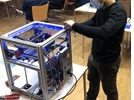 Democratising Fab Labs with Open Source Machine ToolsMohammed Omer, Melina Kaiser, Tobias Redlich, and 1 more authorIn Proceedings of the Fab 17 Research Papers Stream, Dec 2022
Democratising Fab Labs with Open Source Machine ToolsMohammed Omer, Melina Kaiser, Tobias Redlich, and 1 more authorIn Proceedings of the Fab 17 Research Papers Stream, Dec 2022 -
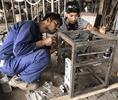 Democratizing Manufacturing – Conceptualizing the Potential of Open Source Machine Tools as Drivers of Sustainable Industrial Development in Resource Constrained ContextsMohammed Omer, Melina Kaiser, Manuel Moritz, and 3 more authorsDec 2022
Democratizing Manufacturing – Conceptualizing the Potential of Open Source Machine Tools as Drivers of Sustainable Industrial Development in Resource Constrained ContextsMohammed Omer, Melina Kaiser, Manuel Moritz, and 3 more authorsDec 2022Similar to open source software, the open source hardware (OSHW) movement is seen as a technology driver which can enable developing economies to leapfrog their industries. While machine tools are a subset of OSHW, they have received relatively little academic attention compared to electronic OSHW. This study applies an explorative research approach and analyses open source designs for machine tools freely available on the internet. By coining, the term open source machine tools (OSMT), it determines their applicability in low resource contexts and identifies the potential of OSMTs in democratizing manufacturing technologies. OSMTs thereby encourage diversification, entrepreneurship, and inclusive industrial development, thus contributing to the implementation of Sustainable Development Goal no. 8 which aims to promote inclusive and sustainable economic growth. Specific areas for OSMT application in low-resource contexts and factors and barriers affecting their success are singled out.
-
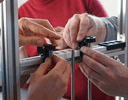 Community-based replication of Open Source Machine ToolsLuisa Lange, Michel Langhammer, Sonja Buxbaum-Conradi, and 4 more authorsDec 2022
Community-based replication of Open Source Machine ToolsLuisa Lange, Michel Langhammer, Sonja Buxbaum-Conradi, and 4 more authorsDec 2022The number of developments of open-source hardware (OSH) has rapidly increased within the last years. One special form of OSH are machine tools, which are developed in an open-source manner, so called Open Source Machine Tools (OSMTs). OSMTs enable the manufacturing of hardware artefacts within open labs, fab labs and open production networks. Additionally, the distributed design and development as well as the replication process of OSMTs are aimed on increasing the technological literacy of its users within a community. The research presented in this paper focusses on the replication process of OSMTs within community-based workshops in the field of Fab City Hamburg. The current state of replication processes of already developed and prototyped OSMTs has been outlined based on interviews, observations and document analyses. First insights were gained whilst participating in community-based workshops as well as through conversations with the workshop participants and instructors along with OSMT designers and engineers. Subsequently the replication process of OSMTs was analysed and areas of improvement have been detected with regards to enhancing the technological literacy of the workshop participants. The authors conclude that OSH build workshops bare great potential of a new, holistic approach to achieving technological literacy within a short period of time. With this paper, the authors identify important interconnections of OSMT replicability and technological literacy through replication workshops and form a basis for further research within this area.
-
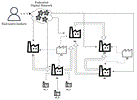 Distributed Manufacturing: A High-Level Node-Based Concept for Open Source Hardware ProductionJorge Cesar Mariscal-Melgar, Mohammed Omer, Manuel Moritz, and 3 more authorsDec 2022
Distributed Manufacturing: A High-Level Node-Based Concept for Open Source Hardware ProductionJorge Cesar Mariscal-Melgar, Mohammed Omer, Manuel Moritz, and 3 more authorsDec 2022Distributed manufacturing is presented as a means to enable sustainable production and collaboration. Rather than rely on centralised production, distributed manufacturing promises to improve the flexibility and resilience to meet urgent production demands. New frameworks of production, based on manufacturing models with distributed networks, may provide functional examples to industrial practice. This paper discusses efforts in distributed production in the context of Free/Open source hardware and devises a conceptual framework for future pilots at which open source machines, such as a desktop 3D printer, may be manufactured in a network of open/fab lab nodes.
2015
-
 Design and Analysis of a Composite Chassis for Shell Eco Marathon Prototype Vehicle 2016 using Finite Element AnalysisMohammed OmerDec 2015
Design and Analysis of a Composite Chassis for Shell Eco Marathon Prototype Vehicle 2016 using Finite Element AnalysisMohammed OmerDec 2015The aim of this thesis is to design and analyse an optimal lightweight chassis for the GUtech Shell Eco Marathon Team (GSET) prototype vehicle 2016. Considering the fact that increased weight has a detrimental effect on fuel economy, this thesis aims to aid the weight reduction objective set by GSET through designing a chassis that is lighter and stiffer than the previous year’s chassis. The overall proportions of the vehicle are also reduced by packaging the rear end in a more compact manner. Chassis design concepts are introduced and different composite materials are analysed. The newly designed composite chassis is modelled in Solidworks and then simulated in ANSYS Workbench Mechanical coupled with ANSYS Composite PrepPost using finite element analysis (FEA). Several possible loading scenarios are taken into consideration and then simulated in order to achieve the optimum compromise between low weight and adequate stiffness. A sandwich panel structure utilising nomex and carbon fibre reinforced polymers (CFRP) is researched instead of a solely carbon fibre approach. The effect of increasing the sandwich core thickness is analysed using FEA. Furthermore an attempt to implement the engine as a chassis member is looked at with the final composite chassis design weighing in at less than half as much as the previous year’s aluminium chassis. A 55% weight reduction is achieved without compromising on stiffness and in the final chapter fabrication recommendations are provided that would be helpful for the next generation of GSET to fabricate the composite chassis in the University workshop.